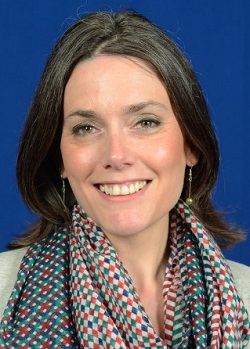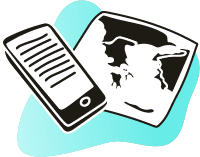Title of the resource
Title of the resource in english
Original language
Target and Age Group
Teachers including Special Needs teachers; general public, families of autistic children, therapists, psychologists, autism professionals, academics, students.
Link to resource
Autism and Classical Mythology
Accessed on 5 August, 2020
Author of the Entry:
Susan Deacy, University of Roehampton, s.deacy@roehampton.ac.uk
Peer-reviewer of the Entry:
Ayelet Peer, Bar- Ilan University, ayelet.peer@biu.ac.il
Second Peer-reviewer of the Entry:
Lisa Maurice, Bar-Ilan University, lisa.maurice@biu.ac.il
Susan Deacy
Susan Deacy, born Cardiff, Wales in 1970, is a UK-based classicist who has been working at the University of Roehampton, London since 2004. She has been Professor of Classics at Roehampton since 2018. She fell in love with classical mythology after reading Roger Lancelyn-Green’s Tales of the Greek Heroes at the age of around 10. This love accompanied her though the tail-end of primary school, through secondary school and through the University (St David’s University College, Lampeter, subsequently University of Wales, Lampeter, now UWTSD Lampeter) which she picked not least because of its myth module. After graduating with a BA in Classical Studies/Theology she did a PhD on how ancient Greek myth constructs the goddess Athena. Among her research activities are the editorship of the series Gods and Heroes of the Ancient World (2005-). She was awarded a National Teaching Fellowship in 2015 in recognition of her indicatives around fostering a more inclusive and relevant Classics. She is one of the senior researchers on the Warsaw-based Our Mythical Childhood where he roles including researching the appeal of classical myth for autistic children.

Contents & Purpose
The idea for the blog began at a meeting in 2008 with a special needs teacher, who mentioned to Deacy that, in her experience and those of her colleagues, autistic children often enjoy learning about classical myth. Starting with this anecdotal evidence, Deacy began to wonder why this might be the case, and whether – as a classicist who researches classical myth – there was anything she could do by way of creating resources. She started the blog in 2009 to set out her progress. For a while, the blog broadened into a disability blog more broadly. This was until the beginning of the ERC-funded project Our Mythical Childhood (2016-21), which is tracing the role of classics in children’s and Young Adult culture. Deacy’s blog presents her progress in her key role for the project which is to explore where classical myth might sit in autistic children’s culture by producing sets of activities.
These activities engage with current thinking around supporting autistic children which includes the exploration of individual interests and passions, one of which can be myth. They consider how classical myth can facilitate communication and engagement for autistic children, including by utilising the potential for conceiving characters of myth as ‘gateways’ to understanding, identifying, contextualising and conceptualising oneself and others. They seek to empower autistic children by drawing on their strengths as well as addressing some of the sources of distress they may encounter, such as the sense that their actions are always beyond their control. Linked with this, the activities seek to offer an alternative model for articulating experience and for making sense of the world.
A first set of activities was completed in February 2018 and disseminated immediately via the blog. This is based on a specific episode in the myth of Hercules: the point where he is tasked to choose between two contrasting paths in life. Deacy opted for Hercules as a figure with particular appeal to autistic children, one reason being that he performs feats which others cannot, and yet, conversely, he experiences emotional overload and distress.


